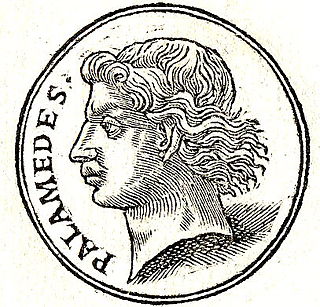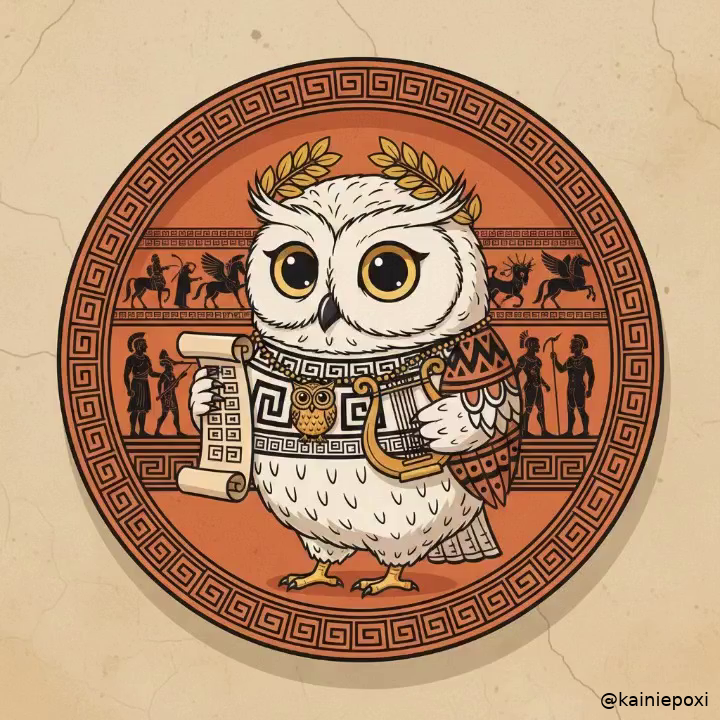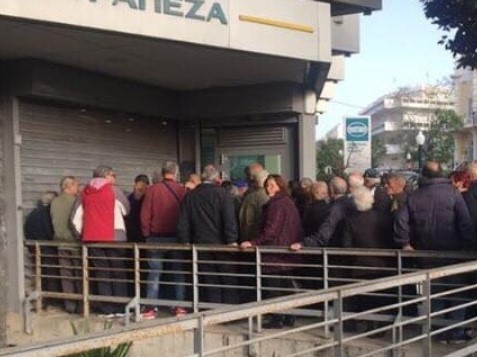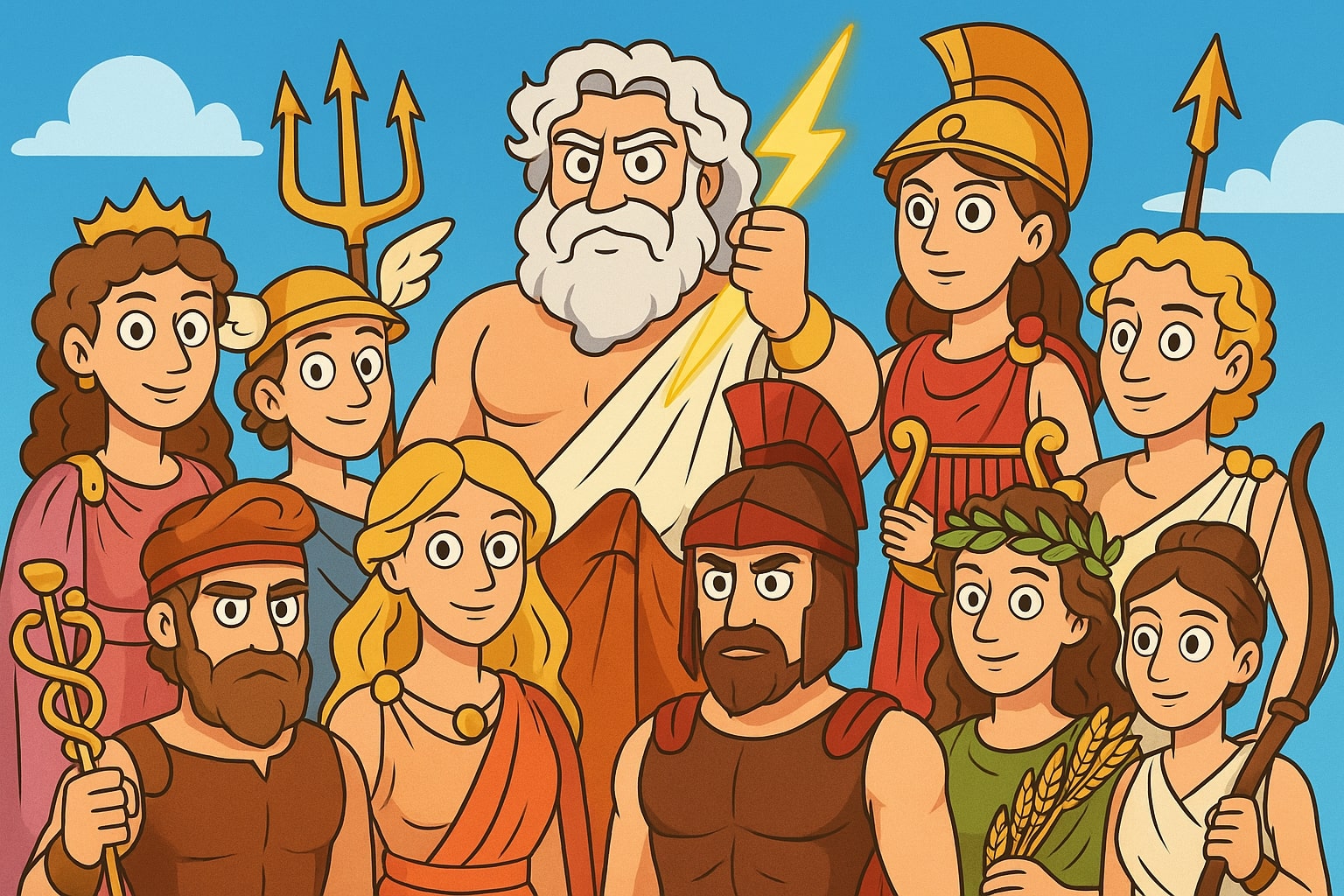Heliad (a.k.a. Trojan War) is an epic poem based on many older oral stories that describes a war conducted for the eyes of a woman, known nowadays as Helen of Troy. All have heard of her, as well as other heroes like the brave Achilles, the patriot Hector and the smart Odysseus. But the story is not written only by the top dogs but also from the secondary characters. So, I present you eight lesser known heroes that shaped, more or less, the story.
PALAMEDES.
At the Trojan War era, the one who is described as smart, cunning and even tricky, is Odysseus or Ulysses, who had the inspiration of the Trojan Horse. But the really smart one was Palamedes. Even though he is not mentioned at all, since Homer started his story from the last year of war, with a name that has its origins to the ancient Greek verb “palaome” and means “I design skillfully”, Palamedes could not be any less than a pioneer inventor. Among other things he invented weights and measures, the Greek letters Ζ, Π, Φ and X, he divided time in months, days and hours and last but not least, he initiated a board game similar to chess or backgammon in order for the troops to kill its time while waiting to kill some Trojans. Once he even explained the phenomenon of the solar eclipse, to superstitious soldiers.
As many as ancient Greek heroes, he had a bad ending. Odysseus (the one with the horse we already talked about), due to his envious for his popularity and achievements, framed him as a traitor and co-worker of the Trojans. Agamemnon, the Chief Commander, believed this rather stupid accusation and sentenced one of his best generals to death, by stoning.
GLAFKOS
Glafkos was one of the allies of Troy and an excellent warrior. Grandson of the mythical hero Velerefontis, who killed the Chimera beast, participated in the war representing his entire glorious family. In the battlefield he came face to face with Diomedes, with the last praising him for his courage and his skills. That was a big deal because Diomedes was one of the most complete warriors of the ancient era, and his approval was solid gold. When he asked for his name, Glafkos replied with the story of his entire genealogical tree, from which his grandfather Velerefontis, was not unknown to Diomedes. On the contrary, his grandfather Ineas, had hosted Velerefontis in his palace and thus, the two families were bonded with relation via hospitality. The two men got off their chariots, hugged in a middle of a battle without anybody harming them and changed presents. The bard has a lovely description, which reveals the real and much less poetic reason for the whole war. That the mind of Glafkos was confused by Zeus and he traded his golden weapons (value of 100 oxes) with the coper ones of Diomedes (value just 9).
EPIOS
He was the actual constructor of the Trojan Horse. And it is extremely unfair that we do not call it Epian Horse. As we say Eiffel Tower and Saxophone for example. He was a really handy man and also an excellent boxer. During the games that Achilles organized to honor the memory of his dead friend Patroclus, Epios participated in a couple of them and failed dramatically. But when the boxing contest started, his time had finally come. He stood and provoked his opponents with trash talk, just like boxers do nowadays. And he was so efficient, that all Greeks were too intimidated to confront him, until Evrialos accepted his challenge. But even he, the descendant of a family of boxers, was no match for Epios. He was able to give some punches but he took an extremely strong hook and kissed the ground. Afterwards though, in the spirit of fair play, Epios run and lifted him, declaring the level of civilisation needed in fighting sports.
ASTEROPEOS
Another one who comes from the side of the Trojans. An ally from the land of Paionia (pronounced Peoneea), and leader of the homonym nation, he among all the warriors had a specific feature. He was ambidextrous. That means that he could use both his hands with the same ease, a great advantage when you conduct a war with a lot of spear throwing. During his fight with Achilles, and according to the old way, first he introduced himself. And then he used his signature move and threw both his spears one after the other. The first stroke on the shield of Achilles without causing any real damage to it, because it was a weapon made by Hephaestus, the blacksmith god. The second scratched Achilles’s armpit, one of the few vulnerable spots he could actually hit. A little scratch was not enough to stop the demi-god Achilles who returned the blow with such fierce that even though he missed terribly, his spear shoved half the length in the ground. Asteropeos run and tried to release it and use it against its owner. But Achilles who was the fastest Greek, reached him and with just one sword swing, sent him to meet his ancestors.
SKAMANDROS
Skamandros was a local river-god. Anthropomorphic, like all the ancient Greek gods, was located almost in the middle of the battlefield. He was a supporter of the Trojan side which makes perfect sense if we consider who were offering him presents and worship. After the end of the duel between Achilles and Asteropeos, he complained that his waters were full with corpses and asked Achilles to stop killing the natives. Of course he did not agree and stated this with a loud and rude way. Skamandros, who was a minor god but still a god, floated and tried to drown him. Achilles started running like crazy, regardless his heavy armor, asking Zeus for first and last time in the entire story, to help him. The river eventually reached and covered him, while he tried to save himself by grasping an old olive tree. And when all seem to end inglorious for the most glorious hero, Zeus (like a deus ex Machina) sent Hephaestus to deal with it. He used the best weapon he had. By burning the reefs and plants in the river shore, rose the temperature in huge heights, and forced Skamandros to a shameful retreat.
HRISIS
Hrisis, a name which has a root the word “Hrisos” (gold), was a priest serving the mighty god Apollo. And he must have been a hell of a priest because when he addressed to Apollo, the god heard his request and “replied” instantly. The story goes like this. The Greeks were looting and looting and among the things they were taken, was the daughter of Hrisis called Hrisiida. She was given to king and master chief Agamemnon as a servant, and it was he who denied to return her to her father, even though he reached to his tent as a supplicant. So, Hrisis, obviously upset, asked Apollo to punish Greeks in general. Because the good old days, the idea that only the person who commits a crime should be punished, without the rest who just happen to be there, was not still ripe. Apollo who was not into middle solution, sent a terrible epidemy to the Greek camp and caused countless deaths. When the traditional medicine and the offers to the other gods did not work, the Greek oracle named Kalhas, told them that if they do not return the daughter to the father, all will die and their excursion to Troy will come to an end. Agamemnon agreed, but asked for compensation. And particularly the cousin of Hrisiida, called Vrisiida. The problem was that she belonged to Achilles who protested very strongly. Nevertheless, when the chief speaks all other authorities are silent and the trade happened. Hrisis was pleased, Agamemnon was pleased, Achilles withdrew his troops from the battle and soon after that, Trojans had their first victory.
THETIS
Thetis was the mother of Achilles. She was the daughter of a minor sea deity called Nireas. Hence, she like her 49 sisters, had also the nickname Niriida. Thetis was extremely beautiful and not one but two gods, Zeus and Poseidon, wanted to mate with her but they didn’t. Not out of kindness of course, because the lust of a Greek god was above all noble feelings. The reason was that an oracle foretold that the son of Thetis would be mightier than his father. And gods did not want to risk the birth of someone mightier than them. And in order to be even more certain, they married Thetis with Pileus. He was rather easily convinced because, really, how many chances did a mortal have to marry a gorgeous goddess? Plus he took a huge area as reward, the one that today is called Pilion and has wonderful places and very tasty apples. Thetis gave birth to Achilles, and like all mothers, wanted the best for him. So, since she could not make him immortal, she decided to make him at least invincible. She dived him in the water of the lake of Styga, one of the ancient passages to the underworld. Unfortunately she did this by holding him by his ankle, most probably the right one. That resulted in leaving out of the magic water his Achilles’ heel. And, in a demonstration of great irony of Homer’s side, his only and tiny vulnerable spot eventually caused his doom.
CASSANDRA
Cassandra was the daughter of the Trojan King Priam and sister of Hector. Apollo, who as we know had good relations with Trojans, fell in love with her and asked her to be his lover. She accepted but in return, Apollo should give her the ability to foretell the future. The god transformed her in a mighty oracle, but Cassandra refused to keep her part of the bargain and lay in his bed. Apollo, furious of her behavior, instead of stripping her out of her new power, did something even worse. He threw a spell on her and as a result, nobody was ever believing her accurate predictions. They ignored her when she told them that Paris, before he even meets Helen, will destroy Troy. They ignored her when she told them that Helen would be the trigger for the destruction of Troy. They even ignored her, when along the oracle Laokoon (which all believed by the way) shouting that inside the belly of Trojan Horse, were located armored Greek soldiers. When her city fell, she was put with the rest of the loot to share. Agamemnon, who was not satisfied from just Vrisiida, took her as his slave. Some say that she gave birth to two sons of his, while travelling back to his palace. Upon arrival she was murdered, as well as Agamemnon, from his wife Clytemnestra and her lover, Aigisthos.













